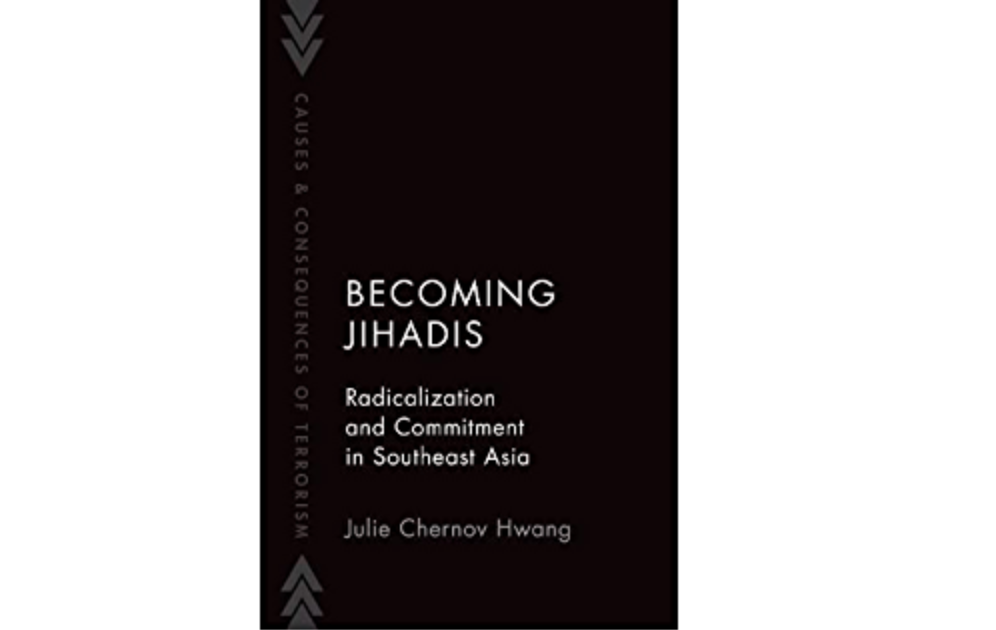Julie Chernov Hawng, Associate Professor in the Political Science and International Relations departments, recently published her third book. She is known for researching how and why individuals join and leave Islamist extremist groups, and Chernov’s articles have been published in many peer-reviewed academic journals, including Political Psychology, Terrorism and Political Violence, Studies in Conflict and Terrorism, and Asian Security, to name a few. Her other two books are Why Terrorists Quit: The Disengagement of Indonesian Jihadis (2018) and Peaceful Islamist Mobilization in the Muslim World: What Went Right (2010). Julie also co-edited the volume: Islamist Parties and Political Normalization in the Muslim World (2014).
Question: Why did you come to Goucher?
“I have been teaching at Goucher for 14 years. I came to Goucher because they were hiring for someone who did comparative politics and international relations—something I do. I stayed because I adore Goucher students. My favorite seminars to teach are Terrorism and Political Violence, Asian Security, Political Islam, Democracy and Violence in Southeast Asia, Religion and Identity in Asia, Introduction to International Relations, and Comparative Political Analysis.”
Why do you study terrorism?
“I am fascinated by why people join extremist groups, what prompts them to commit to those groups; how certain people get to participate in jihad experiences, training camps, and terrorism while others don’t; how and why members disengage from terrorism and violence; and how they reintegrate back into society. I am particularly interested in how social ties and emotions play into joining, committing, and disengaging from a terrorist group.”
What is your new book about?
“Becoming Jihadis: Radicalization and Commitment in Southeast Asia poses four important interrelated questions. Why does someone join an extremist group? What are the pathways via which individuals join such groups? How does one show commitment to an extremist group? Why does someone participate in acts of terrorism? For this book, I conducted 175 interviews with current and former members of Islamist extremist groups in Indonesia and the Philippines, 97 of which were in Indonesia, across 14 groups, and 25 of which were in the Philippines, across 3 groups. I conducted these interviews between 2010-2019. As often as possible, I interviewed people on multiple occasions to build rapport and trust and ask follow-up and clarifying questions. The book also explores the socio-emotional underpinnings of joining an extremist group. This book argues that social ties play a critical role at every juncture in the joining process, from initial engagement to commitment to participation in jihad experiences, paramilitary training, and terrorism. It unpacks the process by which members build a sense of community, connection, solidarity, and brotherhood and how they come to trust and even love one another. Joining is inherently a social experience. And what about ideology? This book finds that ideology functions as a binding agent, not a cause.”

